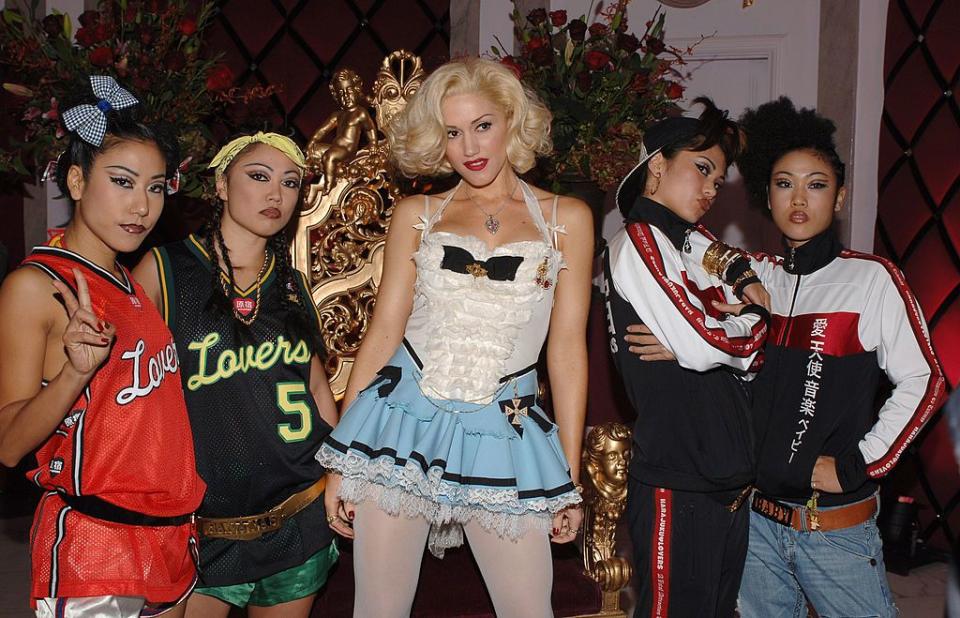Gwen Stefani has faced criticism for her Harajuku era and misappropriation of Japanese culture

Gwen Stefani has responded to accusations of cultural appropriation, defending her use of Japanese culture to promote her music and brands – with claims she is “Japanese and I didn't know it".
Back in the mid 90s, Gwen Stefani’s aesthetic was inspired by Japan – her solo album Love.Angel.Music.Baby, the regular appearance of Japanese backup dancers, and her 2008 fragrance collection, Harajuku Lovers.
Over the years, there’s been growing reevaluation of Stefani’s use of Japanese culture in her visuals and choice of branding. In a recent interview with Allure magazine, around her return with a new beauty brand, the “Hollaback Girl” singer was asked if she had learnt anything from the Harajuku Lovers launch.
Stefani told writer Jesa Marie Calaor that her love for Japanese culture stems from her childhood, thanks to her dad’s frequent travels between California and Japan for his job with car company Yamaha. It inspired her to travel to Harajuku as an adult and experience it for herself.

Stefani, who is Italian-American and now 53, continued to explain that after years of hearing about her dad's work trips, Tokyo “felt like home” to her.
"That was my Japanese influence and that was a culture that was so rich with tradition, yet so futuristic, so much attention to art and detail and discipline and it was fascinating to me.
“I said, ‘My God, I’m Japanese and I didn’t know it,’” she added.
The singer further defended her relationship with Japanese culture, claiming it to be “innocent”: “If [people are] going to criticise me for being a fan of something beautiful and sharing that, then I just think that doesn’t feel right.
“I think it was a beautiful time of creativity… a time of the ping-pong match between Harajuku culture and American culture. [It] should be okay to be inspired by other cultures because if we’re not allowed then that’s dividing people, right?”
Calaor said she believes Stefani was not trying to be “malicious”, but her “words don’t have to be hostile in their intent in order to potentially cause harm”.
Fourteen years after the debut of her Harajuku Lovers fragrance collection, we asked Gwen Stefani about the praise, the backlash, and the lessons she’s brought into her most recent beauty venture. What she said stunned us.https://t.co/9Ajqy1uvYF
— Allure (@Allure_magazine) January 10, 2023
As the interview between Stefani and Calaor circled far and wide across social media, Twitter users joined in with their opinions about cultural appropriation.
One wrote: “gwen stefani telling an asian american interviewer that she identifies as japanese is the kind of oblivion i'm trying to channel in this dark cruel world.”
Another user tweeted: “It is disappointing that Gwen Stefani is choosing to double-down on her Orientalism in 2023. I remember how uncomfortable her “Harajuku Girls” era made me almost 20 years ago.”
“It's incredible that, almost 20 years ago, Gwen Stefani did an extended race-play act that basically no one would accept today, completely got away with it as everyone forgot, and then proactively brought it up again just now.”
Cosmopolitan UK has contacted Stefani’s representatives for comment.
You Might Also Like


